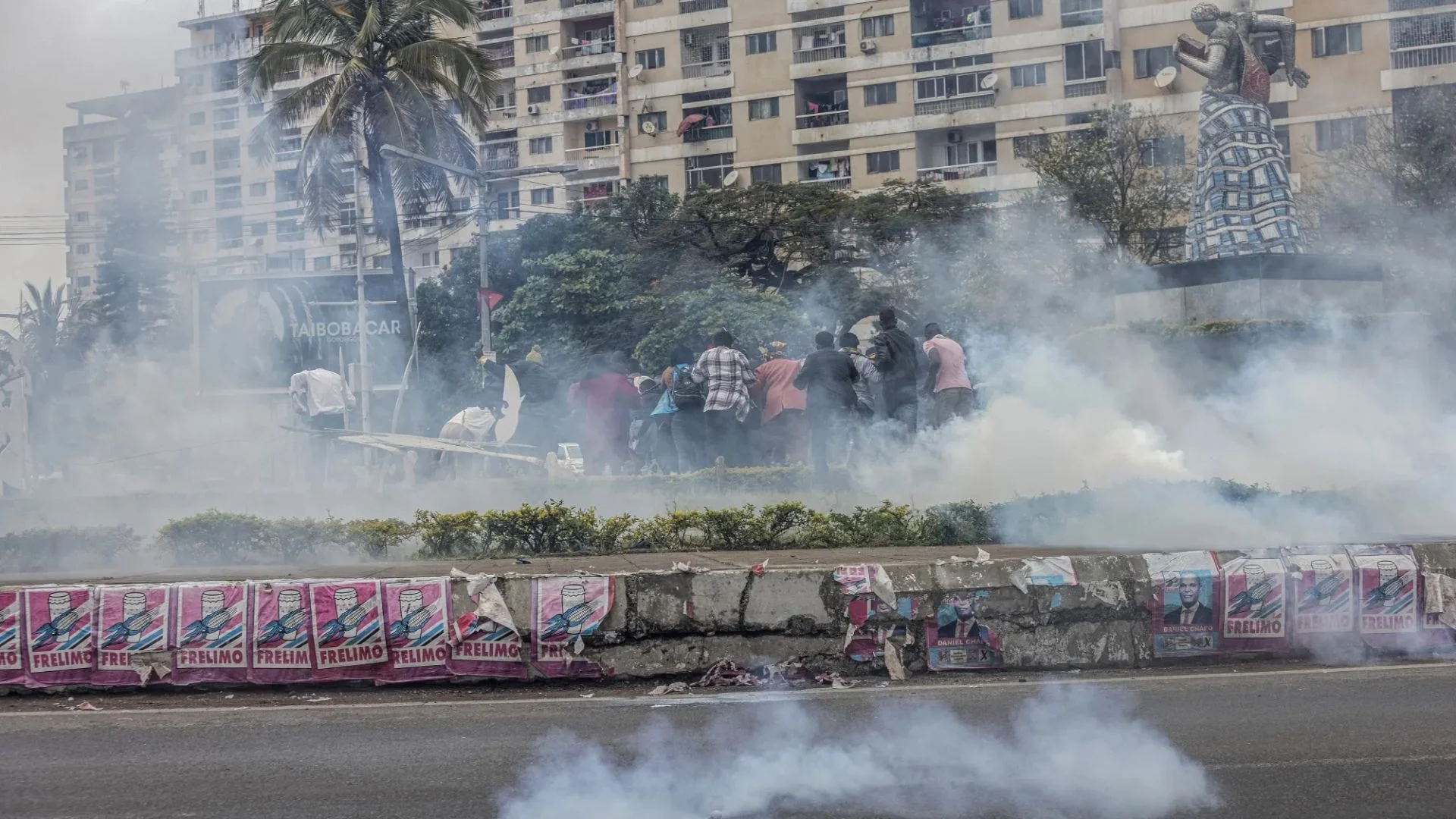Mozambican police fired tear gas at thousands of demonstrators in the capital, Maputo, on Thursday in what has become the largest protest yet against the ruling Frelimo party. The demonstrations erupted following last month’s disputed election, which declared Frelimo victorious, extending its nearly five-decade rule.
Tensions have escalated since October 9, when election authorities announced Frelimo’s win, sparking widespread claims of electoral fraud. At least 18 people have reportedly died in police crackdowns on protests since then, according to human rights organizations. Many protesters, including a strong youth contingent, back independent candidate Venancio Mondlane, who has denounced the election as rigged and called for continued demonstrations.
Chanting slogans like “Power to the people” and “Frelimo must fall,” protesters blocked streets with burning tires and carried handmade signs supporting Mondlane. Among them was 55-year-old street vendor Julia Macamo, who shared her resolve to continue protesting despite inhaling tear gas during a demonstration in Maputo’s Maxaquene neighborhood. “If we don’t stand up now, nothing will change,” Macamo said. “It’s time to see the back of Frelimo.”
Adriano Nuvunga, head of Mozambique’s Centre for Democracy and Human Rights, described these protests as unprecedented. Civil society groups and international observers also criticized the election process, labeling it unfair and manipulated. Frelimo, which has faced prior accusations of election fraud, did not respond to requests for comment, while President Filipe Nyusi remains silent as protests grow. Defense officials have warned against any moves to seize power, even threatening military intervention.
Controversial Vote Count and Rising Discontent
The Constitutional Council, Mozambique’s highest court, has yet to certify the election results. On Tuesday, it ordered the electoral commission to clarify vote discrepancies within 72 hours. While the commission did not immediately respond, the controversy has fueled anger among Mozambicans, many of whom are frustrated by limited economic opportunities despite the country’s natural wealth. International energy companies like TotalEnergies and ExxonMobil have billion-dollar gas projects in the north, though operations remain stalled due to ongoing Islamist insurgency.
As South Africa closes its primary border with Mozambique and its citizens are advised against non-essential travel, neighboring companies, including logistics firm Grindrod, have also suspended operations in Mozambique amid the unrest. “Our generation must act now to secure a brighter future,” said 22-year-old social activist Jessica Muando.







